Many athletes, bodybuilders or even regular gym goers, believe that the only way to build bigger and stronger biceps is to throw some plates on a bar or pickup up heavy weights and bang out countless variations of curls. While having a big set of biceps is attractive, it is important to know that developing the rest of your arm, helps to provide a stronger set of this target muscle group. However there are a number of calisthenics exercises that can not only change up your workout, but also provide an equally valuable and challenging workout that will help achieve your goal of increasing the size and definition of your “guns”.
As with any exercise or workout program, a proper warm-up, cool-down and recovery period is important for both safety and success.
Pull-Ups
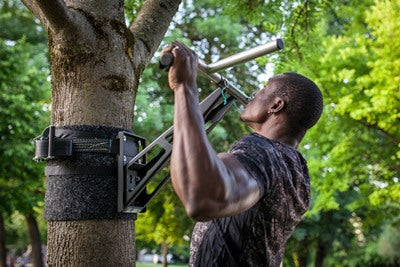
In addition to helping develop your back, chest and shoulders, pull-ups are one of the best biceps building exercises that you can do with minimal equipment. If you do not have access to a pull-up bar, you can use your creativity and use a piece of playground equipment, a tree branch or a soccer goal with the option of attaching a set of gymnastics rings.
How To Do It: Hanging from the bar with your hands roughly shoulder width apart with palms facing outward, let your body hang so your arms are straight (ideally having your feet off the floor). Slowly, while keeping your body from swaying back and forth, pull yourself up until your chin is above the height of the bar. Keeping the same time under tension, lower yourself down (don’t just drop like dead weight). If you decide to change your grip, it will help target different muscle groups in your arms, shoulders and chest, but all will help build your biceps equally.
Chin-Ups
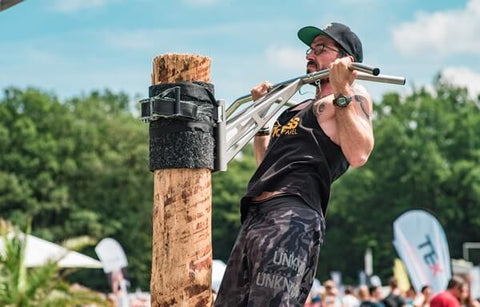
Some people get confused between chin-ups and pull-ups as they use the same equipment and have similar movement patterns. However, chin-ups use shoulder extension and an underhanded grip whereas pull-ups use shoulder adduction and an overhand grip. Chin-ups also focus more on your biceps than pull-ups will, which may be the reason why you are able to do more chin-ups than pull-ups. As with pull-ups, chin-ups can be done on any type of bar or support beam, in a gym, at home or at the park.
How To Do It: As with the pull-up, for the basic chin-up, grab the bar shoulder width apart, palms facing outward. Using your upper body strength (keeping your core engaged), lift your body upwards towards the bar until your chin is above it with your elbows fully bent. With controlled movement, lower yourself back down until your arms are once again straight. Repeat for desired number of reps.
Archer Pull-Ups

Named for the position that your body creates when you reach your final pose, similar what one look like when firing a bow and arrow. If you have mastered the regular pull-up and are ready to tackle a more advanced version. As a progression towards the one arm pull-up, archer pull-ups require you to use one arm as “support”, while the other arm does the majority of the pulling movement. Using a set of rings may be easier and more comfortable for learning how to do archer pull-ups.
How To Do It: Starting in a regular pull-up position with an overhand grip, pull yourself to one side and upward so that your opposite arm straightens out and ends up parallel to the floor at the height of your pull-up. Slowly lower yourself back down and repeat with the opposite arm.
Frenchies
In the most basic term to describe a Frenchie, it is a isometric pull-up exercise that focuses on three points of strength, the bottom, middle and top stages. Combining three different contractions into one exercise, the concentric, eccentric and isometric, a Frenchie pull-up is a great way to build your upper body strength.
How To Do It: Starting from a dead hang position, execute a full regular pull-up. Before you begin the eccentric lowering phase, hold at the top for a count of three seconds. Slowly start to lower down to 90 degrees and hold for a count of three. Continue to lower down to 145 degrees and hold for a count of three and then slowly lower to the beginning position. Repeat for a set number of reps. As there are three stages in which you are “frozen”, you may find that you might only be able to do half the amount of reps of your normal pull-up workout.
Ring Curls
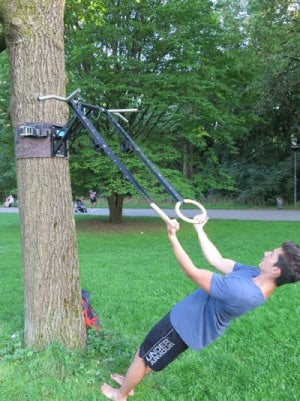
Whether you use a set of gymnastics rings or a suspension trainer, either of which allow you to perform the ring curls exercises in the same environment as you do your pull-ups. As a great alternative to dumbbell bicep curls, ring curls allow you to use your bodyweight for resistance and can be altered by the angle of your body.
How To Do It: With the rings hanging roughly to mid-chest, grab the handles with an underhanded grip and allow your body to slowly lean back until your body is at a flat (plank like) 45 degree angle. You can choose to keep your feet flat on the floor or rest on your heels. With your arms straight out, keep your elbows at shoulder height, curling your body up using your biceps only. Slowly lower yourself back down to starting position, using both the concentric and eccentric phase to challenge your muscles.
Pseudo Planche Push-Ups
For some, regular push-ups are challenging enough, for others, a progression is much needed. Imagine with just a simple alteration to the placement of your hands that added progression is met.
How To Do It: Position yourself in traditional push-up position, however instead of placing your hands in line with your shoulders, place them down towards your stomach. For beginners, you may not be able to successfully complete a push-up with your hands that low, so gradually place your hands slightly lower than shoulder height). You may choose to point your fingers forward, back or out to the side depending on the flexibility of your wrist and comfort. Push into the floor to lift your body into a push-up position as your weight yields forward into your chest and shoulders. A full planche push-up will result in your feet coming completely off the ground as you will be lifting all of your bodyweight at your centre of gravity.
Pelican Curls (aka Pelican Push-up)
In order to achieve ultimate success with your pelican curls, you need to make sure that you have a good amount of flexibility, mobility and range of motion in your arms and shoulders. One of the most challenging, yet effective bodyweight exercise for targeting your biceps, the pelican curls require a number of progressions to assist you to getting to your ultimate full pelican curl. Our example will use a set of gymnastics rings, however for those who are in the beginning stages, using a set of chairs is an ideal starting place
How To Do It: Starting in the lower position of a push-up with your palms facing inward, keeping your elbows close to the body, slowly lower your body down. As you lower, your arms will extend behind you, your elbows should have neutral rotation. While lowering forward, your palms will begin to face forward. Make sure you keep a nice flat back (as with regular push-ups). Do not extend to full elbow extension unless you are advanced in the exercise, as it can place a lot of pressure on the elbows. Keeping the elbows pulled together being your back, use your biceps to pull you back up to the beginning form.
Pull-up Iso Hold
Any type of static or “iso” hold forces the proper muscle groups to fire. Often with full range movement exercises, the target muscle does not get as much attention as it deserves, but when you “freeze” it, you will definitely feel the burn as there is no lengthening or shortening involved. In addition to working the arms, pull-up iso holds will help strengthen the rhomboids and trapezius muscle groups.
How To Do It: As with a regular pull-up, using a bar or rings (or any outdoor support beam), make sure that you have proper form. One of the key focus point for isometric holds is to think of pulling the bar towards you as opposed to pulling you towards the bar. You can add alterations to the iso hold by changing the height of which you stop ( top, ¾, middle, ¼ ) and also the position of your legs (L-sit, knees tucked) and also if you get to an advanced level, doing the exercise with a single arm.
Korean Dips
One of the hardest variations of the dip exercise to execute properly, it is important that you have experience with many of the other variations of dip exercises first, especially ones using the straight bar. This variation of the dip exercise requires a lot of shoulder flexibility and range of motion in order to perform safely and efficiently. The primary focus of the Korean dip is not the biceps, but more-so the surrounding muscle groups, which help give definition, stabilization and strength to the biceps.
How To Do It: If you are using a straight bar, sit on the bar with your hands beside you in a reverse grip position (palms facing the same direction that your body is). Slowly slide your body off the bar, using your arms to help support your weight and stabilize any unnecessary swaying. With your legs straight out behind you, dip your body down and under the bar. Keep your elbows pointed upward, do not allow them to flare out to the sides as it will put a lot of pressure on your shoulders. Once you have reached your lowest point, push yourself back up to the starting position using your arms and shoulders.
Curls With Bands

A great piece of exercise equipment is the resistance band. Throwing a set of these in your bag or keeping in your home, office or car will allow you to get in a full body workout any time and any place. Yes doing curls with dumbbells will provide you with the option for heavier weight, but bicep curls with bands can provide you with more tension throughout the exercise.
How To Do It: Whether you use a dual handle band or one solid strap, resistance band curls should be a staple in your workout program. Standing on the band in a neutral stance, take the handle/end of band in each hand, start with your arms straight down, palms facing forward. As with dumbbell curls remember not to anchor your elbows into your sides. You can choose to do double arm curls or single arm curls as you would with dumbbells, but do not let the band snap back eccentric phase. Repeat for desired rep count. Progression and alterations include reverse biceps curls, concentration curls, preacher curls and seated hammer curls.
With the goal of having bigger and stronger arms as part of your workout program, remember that what you do to the front, you have to do to the back. Make sure that you add in proper triceps, shoulders and forearm exercises to your workout in order to help achieve your goal.
Are you looking for the perfect Calisthenics equipment to start out? We at Pullup & Dip offer you various high-quality Calisthenics equipment. Go check it out now!
Do you want to do more pull-ups?
Recommended articles:
Weighted Calisthenics – Best Exercises, Equipment And All You Need To Know
Top 8 Calisthenics Exercises To Get a Wide Back
How to train biceps on the pull-up bar - 5 effective exercises
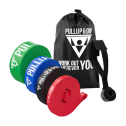
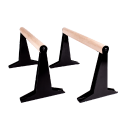
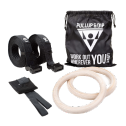

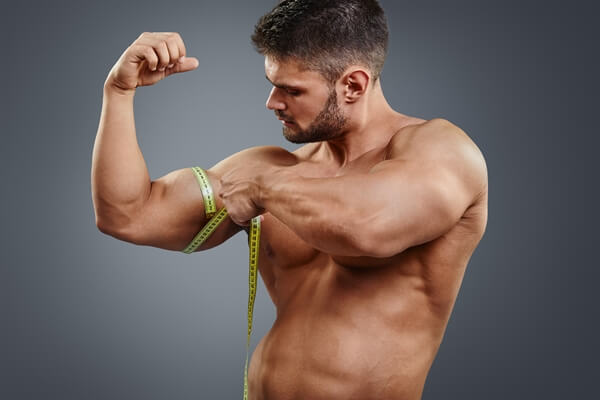

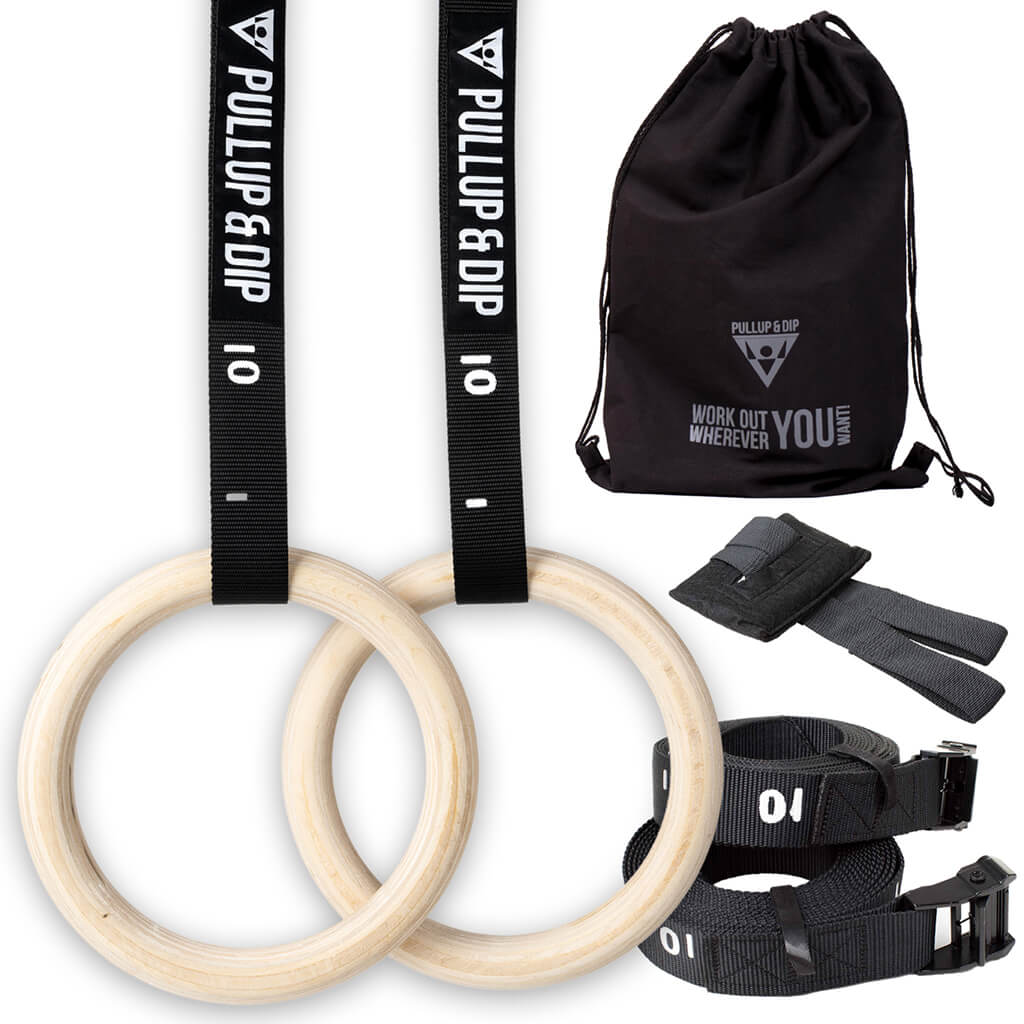
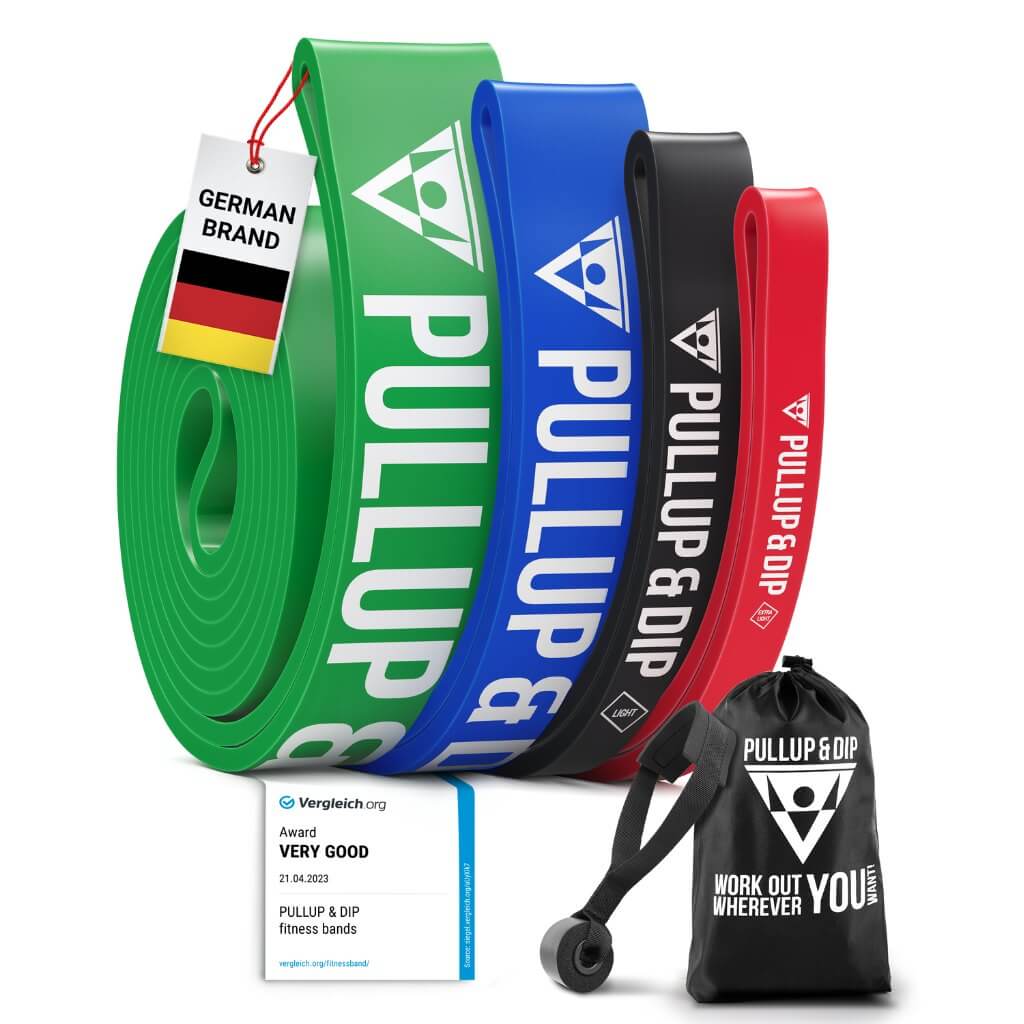
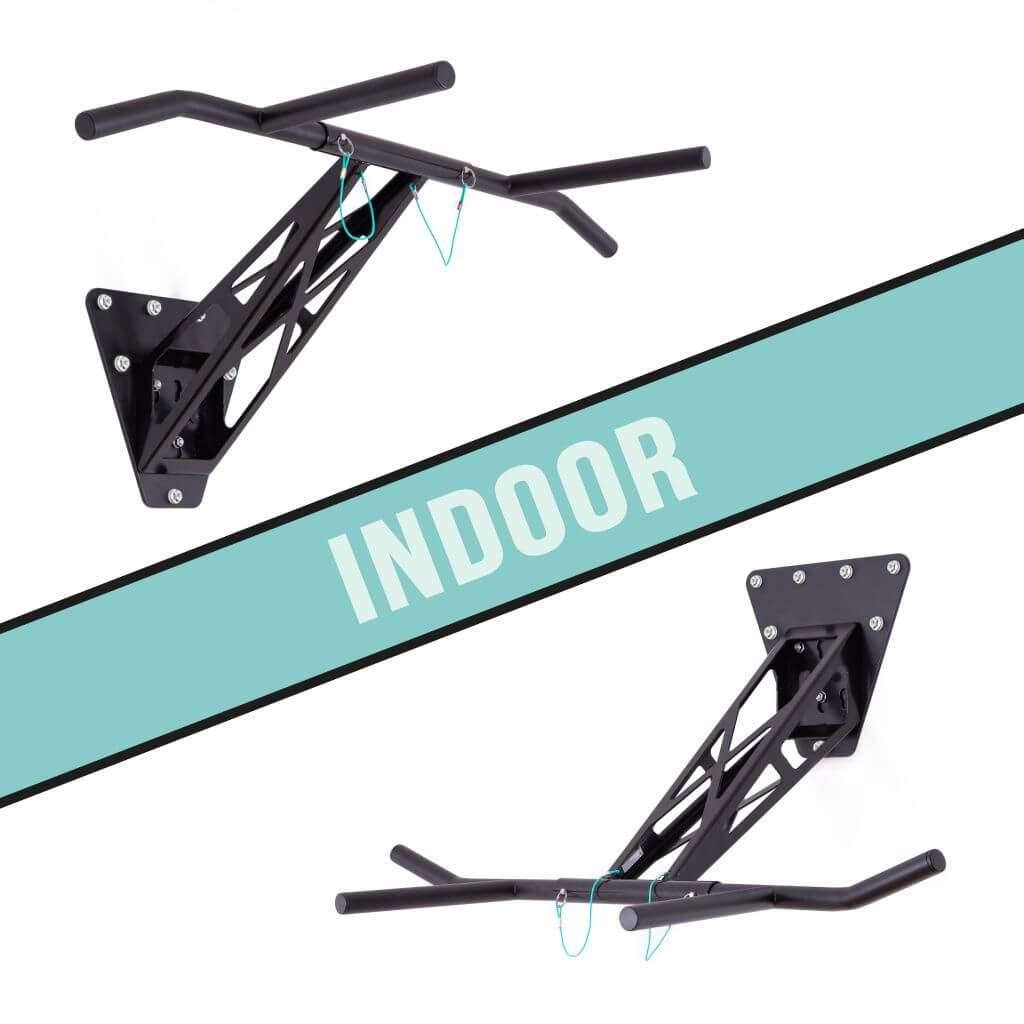
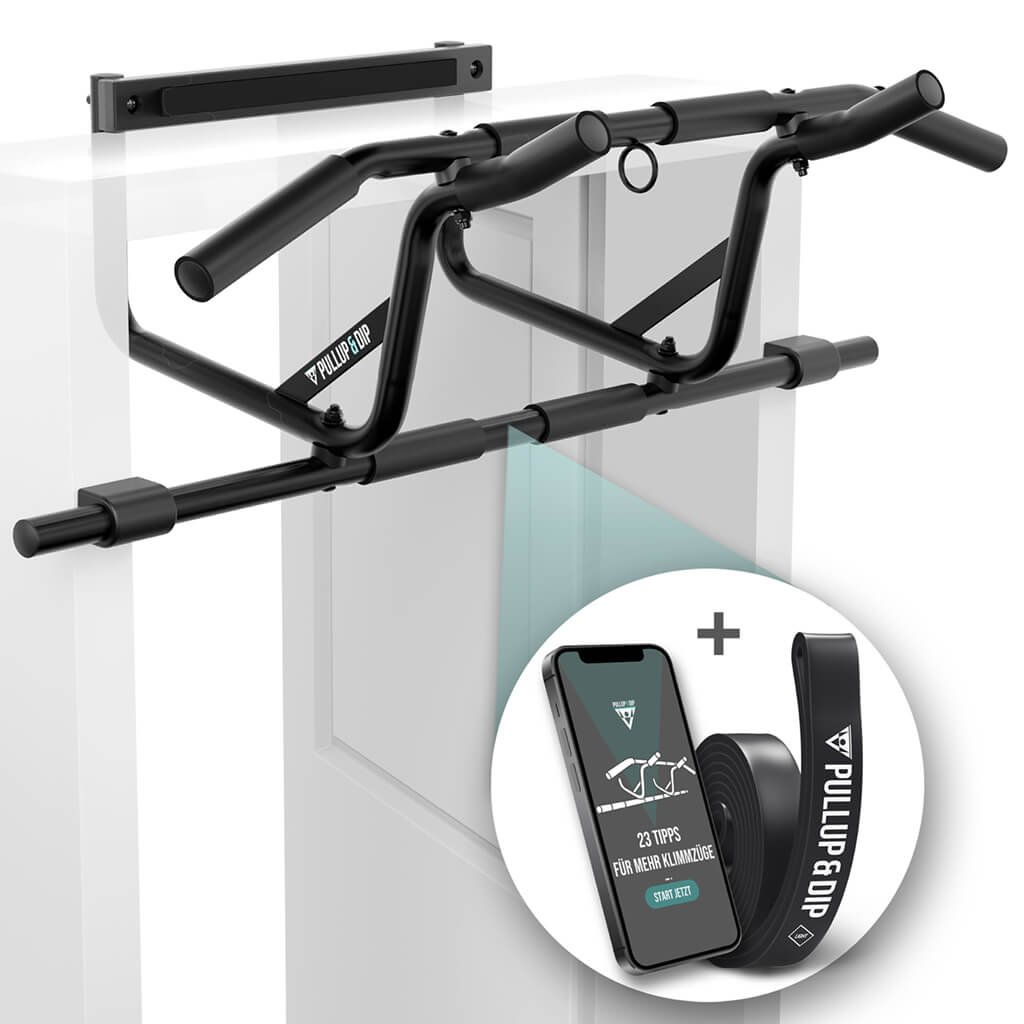
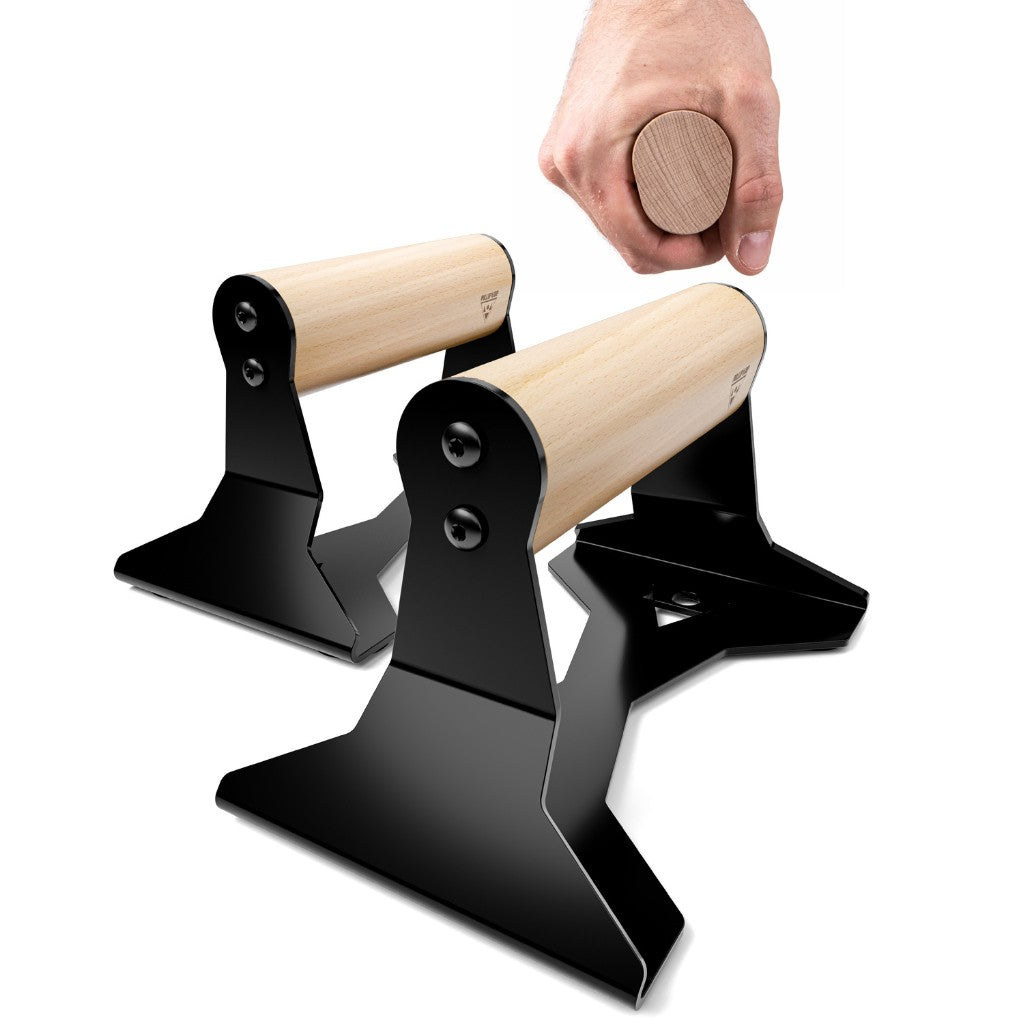
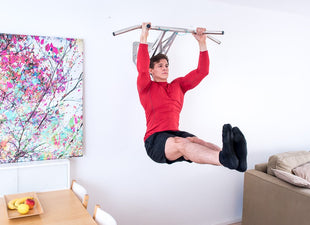
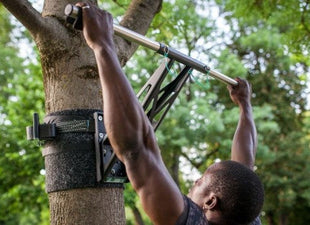
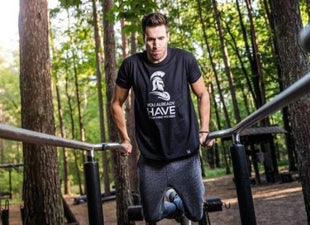
1 comment
mahdi
need
need
Leave a comment
All comments are moderated before being published.
This site is protected by hCaptcha and the hCaptcha Privacy Policy and Terms of Service apply.